Find Help
More Items From Ergsy search
-
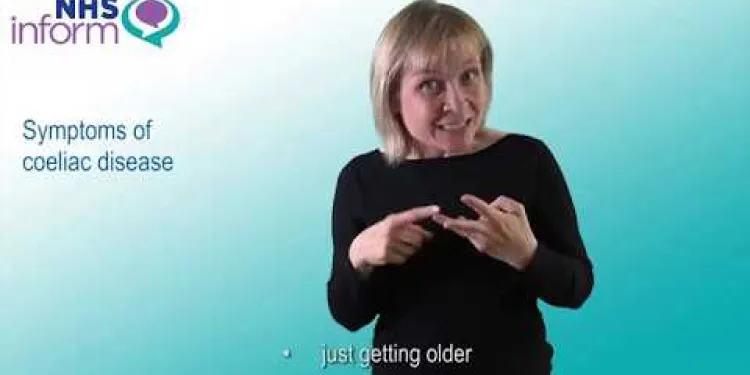
Symptoms of coeliac disease
Relevance: 100%
-
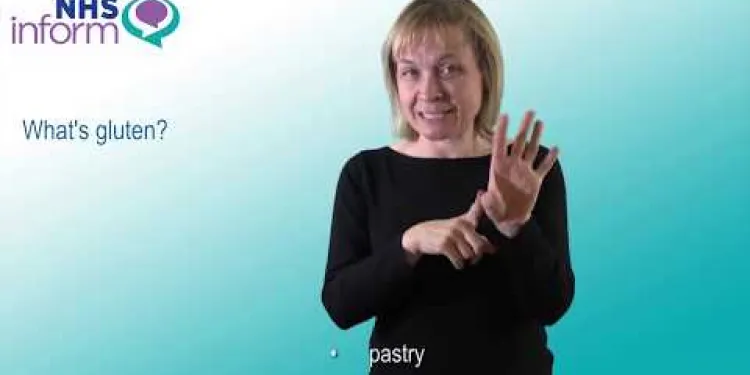
Coeliac disease
Relevance: 89%
-
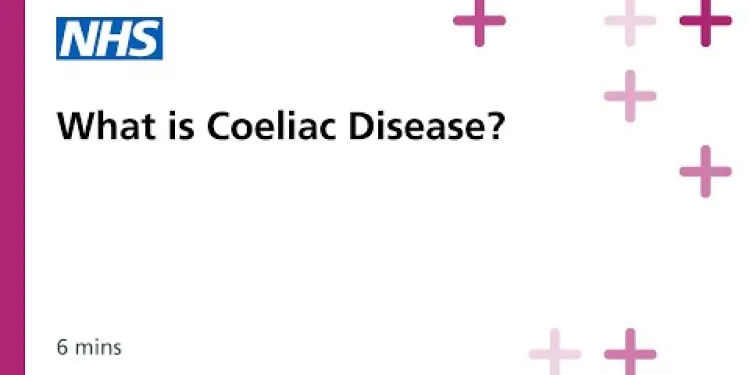
Coeliac Disease: Session 1: What is Coeliac Disease?
Relevance: 88%
-

NHSGGC - What is Coeliac Disease?
Relevance: 82%
-
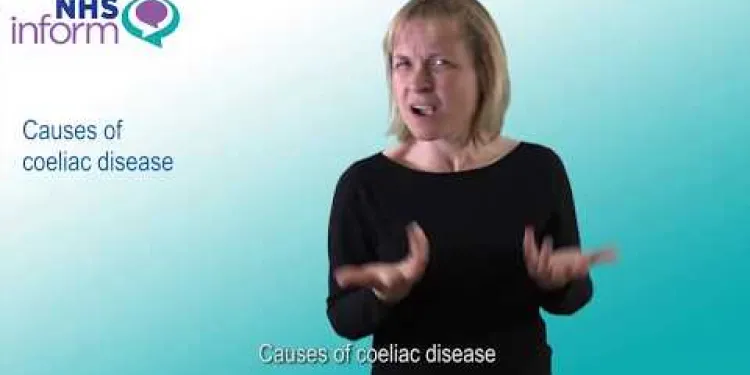
Causes of coeliac disease
Relevance: 82%
-

Living Well with Coeliac Disease
Relevance: 78%
-
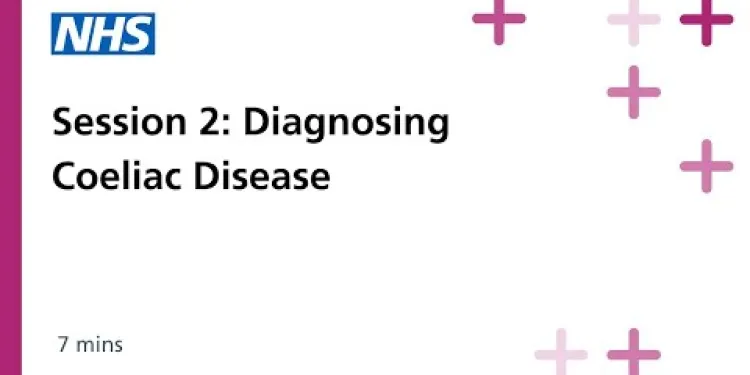
Diagnosing Coeliac Disease Updated 2021
Relevance: 78%
-
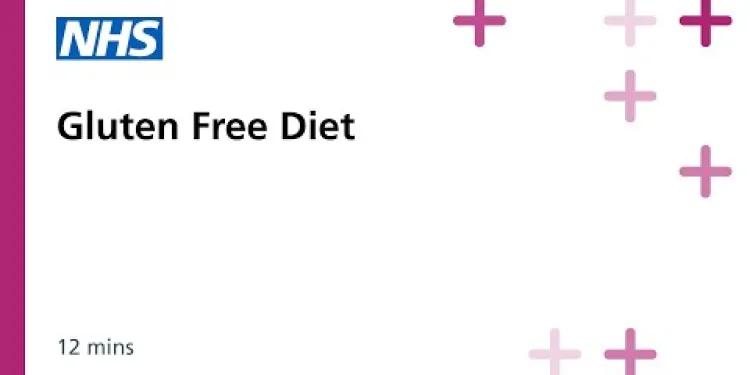
Coeliac Disease: The gluten free diet
Relevance: 75%
-
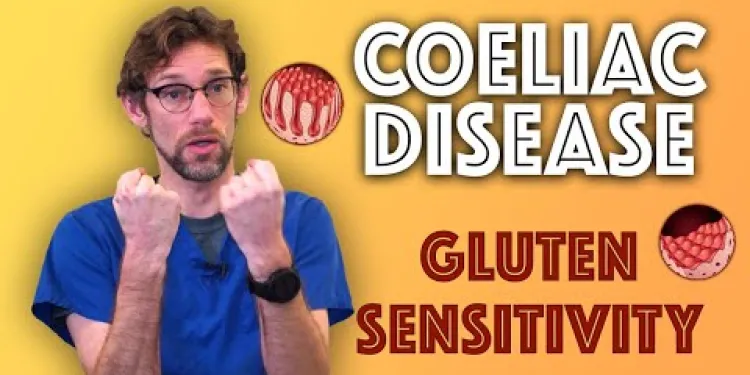
Coeliac Disease Explained - Gluten Sensitivity - A to Z of the NHS - Dr Gill
Relevance: 74%
-

What are the symptoms of Huntington's disease?
Relevance: 42%
-
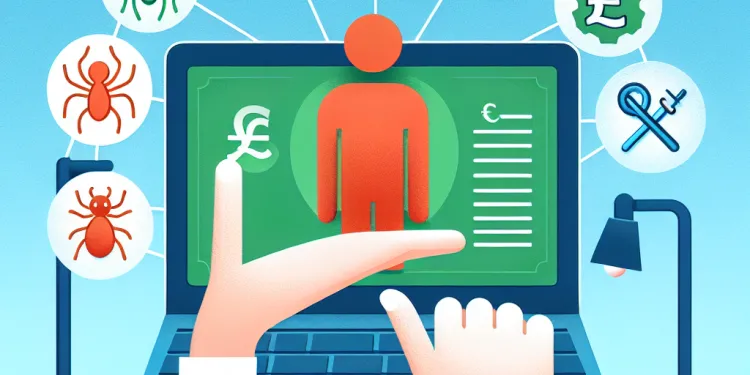
What are common symptoms of Lyme disease?
Relevance: 40%
-
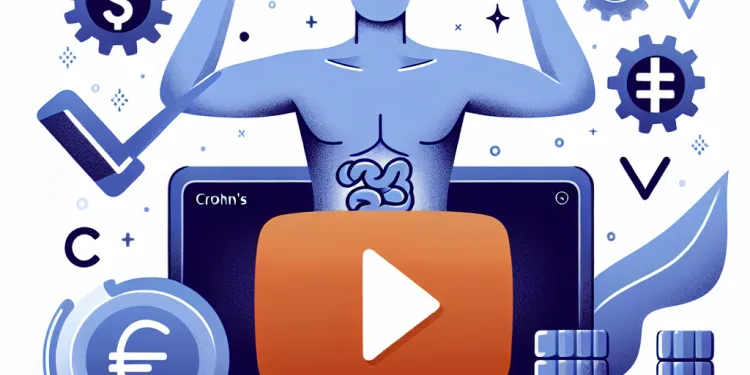
What are the common symptoms of Crohn's disease?
Relevance: 40%
-

What are the symptoms of Marburg virus disease?
Relevance: 40%
-

What are the symptoms of sickle cell disease?
Relevance: 40%
-
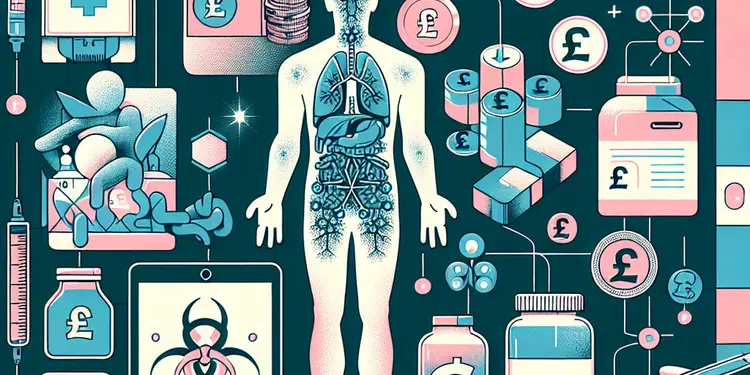
What are the symptoms of flesh-eating disease?
Relevance: 39%
-
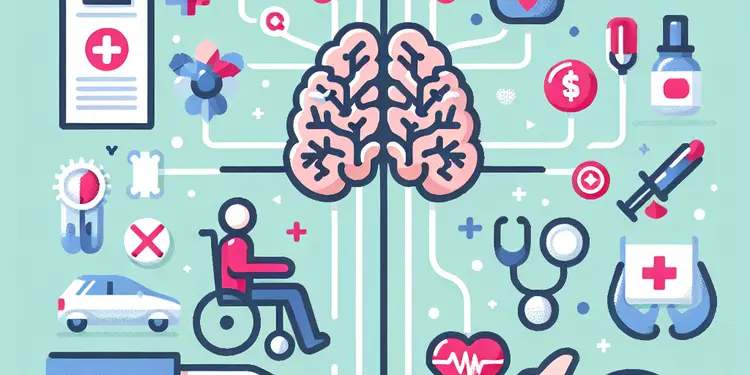
What are the primary symptoms of motor neurone disease?
Relevance: 38%
-
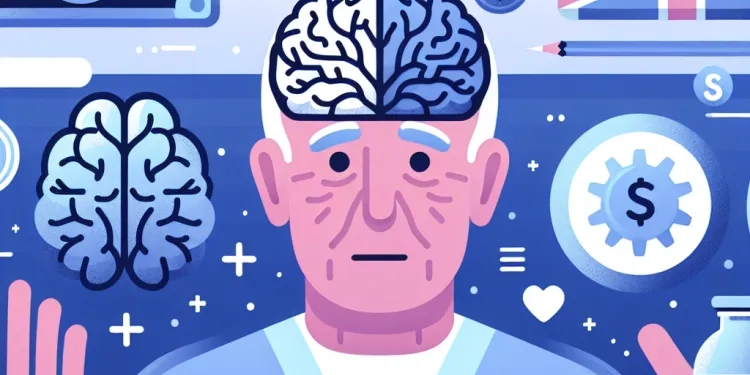
What are the symptoms of Alzheimer's disease?
Relevance: 38%
-

What symptoms should I watch for if I suspect a mosquito-borne disease?
Relevance: 37%
-

At what age do symptoms of Huntington's disease typically appear?
Relevance: 37%
-
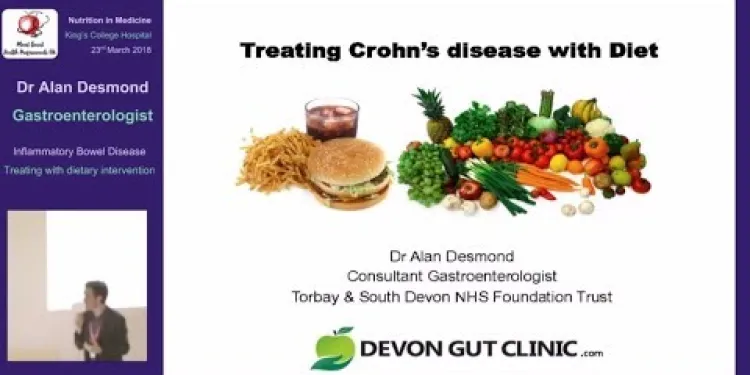
What is the best diet for Crohn’s disease?
Relevance: 29%
-

What is Huntington's disease?
Relevance: 29%
-
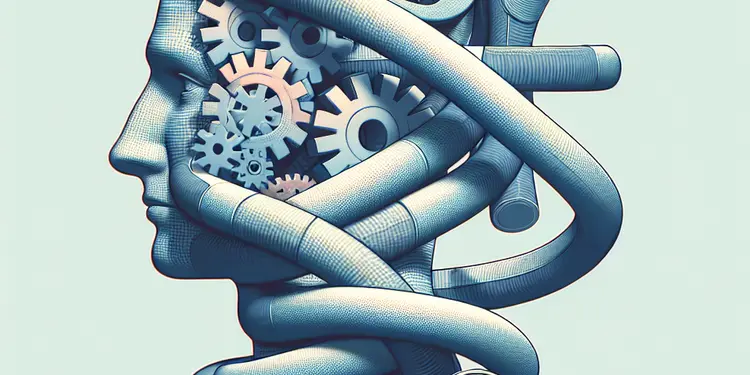
Is Huntington's disease fatal?
Relevance: 29%
-

What is Lyme Disease?
Relevance: 29%
-

What Causes Erectile Dysfunction (ED) - Disease or Symptom - NHS A to Z - Dr Gill
Relevance: 29%
-
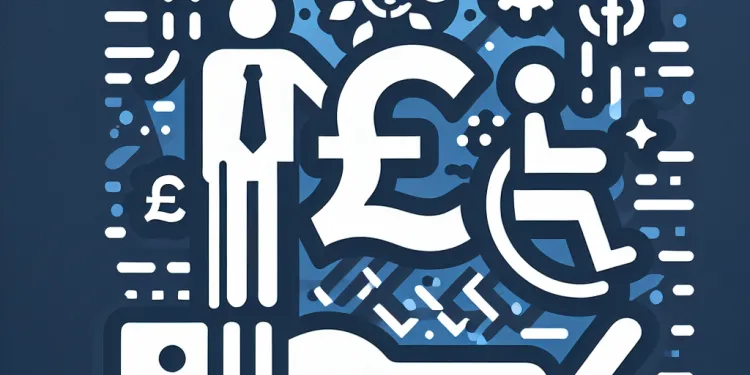
What is Parkinson's disease?
Relevance: 29%
-

Lyme disease: What is it?
Relevance: 28%
-

What is Mitochondrial disease?
Relevance: 28%
-
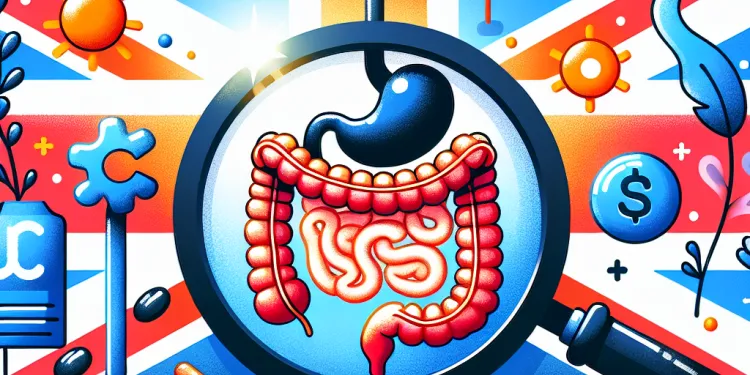
Is there a cure for Crohn's disease?
Relevance: 28%
-

Is Crohn's disease contagious?
Relevance: 28%
-

What causes Huntington's disease?
Relevance: 28%
-

Liver disease | NHS
Relevance: 28%
-

How is Huntington's disease diagnosed?
Relevance: 27%
-

What is Alzheimer's disease?
Relevance: 27%
-

Can Lyme disease be treated?
Relevance: 27%
-
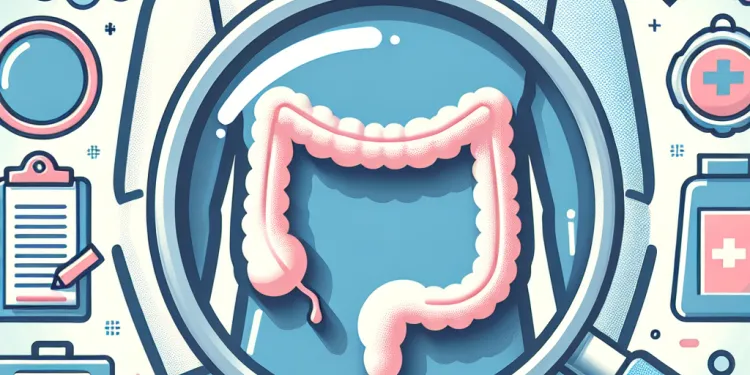
How is Crohn's disease diagnosed?
Relevance: 27%
-

Is flesh-eating disease contagious?
Relevance: 27%
-
What are the symptoms of mitochondrial disease?
Relevance: 27%
-

What is a flesh-eating disease?
Relevance: 27%
-

Introduction to Sickle cell disease
Relevance: 27%
-
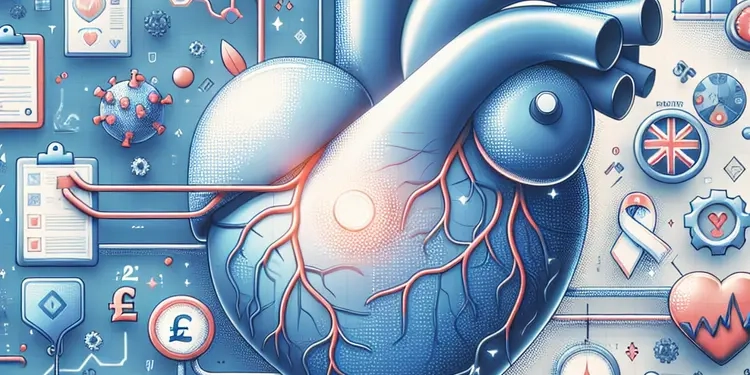
What is heart valve disease?
Relevance: 27%
Symptoms of Coeliac Disease
Gastrointestinal Symptoms
Coeliac disease primarily affects the digestive system, leading to a variety of gastrointestinal symptoms. Commonly reported symptoms include persistent diarrhoea, abdominal pain, bloating, and excessive flatulence. Some individuals may also experience nausea, vomiting, or constipation. These symptoms can range from mild to severe, and they often flare up after consuming gluten-containing foods such as bread, pasta, and cakes.
Non-Gastrointestinal Symptoms
Aside from gastrointestinal issues, coeliac disease can manifest in a number of other ways. Fatigue, particularly after meals, is a frequent complaint, as the body struggles to absorb nutrients. Weight loss and delayed growth in children can also be signs of untreated coeliac disease. Other symptoms may include anaemia (due to iron deficiency), osteoporosis (stemming from poor calcium absorption), and mouth ulcers.
Dermatological Symptoms
Some individuals with coeliac disease may develop a skin condition known as dermatitis herpetiformis. This rash is typically itchy and blistering, appearing most commonly on the elbows, knees, back, and buttocks. The rash is often symmetrical and can be quite painful. It acts as an external indicator of gluten intolerance and can be alleviated by adhering to a strict gluten-free diet.
Neurological Symptoms
Coeliac disease can also affect the nervous system, leading to symptoms such as headaches or migraines, balance problems, and nerve damage symptoms like numbness or tingling in the hands and feet (known as peripheral neuropathy). Some sufferers may also experience cognitive issues such as brain fog or difficulty concentrating, impacting daily activities and quality of life.
Reproductive Symptoms
In women, coeliac disease can cause menstrual irregularities, infertility, or recurrent miscarriages. Pregnant women with untreated coeliac disease are at a higher risk of complications such as preterm birth and low birth weight. It is crucial for women experiencing these symptoms to consult with a healthcare professional for appropriate testing and management.
Conclusion
Coeliac disease presents a wide range of symptoms that can affect various parts of the body. Early diagnosis and management through a gluten-free diet can significantly improve quality of life for those affected. If you suspect you have coeliac disease, it’s important to consult with a healthcare professional for accurate diagnosis and appropriate treatment.
Symptoms of Coeliac Disease
Stomach Symptoms
Coeliac disease mainly affects the stomach and intestines. This can cause problems like runny tummy (diarrhoea), tummy ache, feeling full or really gassy. Some people might feel sick, throw up or have trouble going to the toilet (constipation). These problems often happen after eating foods like bread, pasta, and cakes, which have something called gluten.
Other Symptoms
Coeliac disease can also cause other types of problems. You might feel very tired, especially after eating. This is because your body isn’t getting enough nutrients. Some people might lose weight or children might not grow as they should. Other problems can include feeling weak from low iron (anaemia), weak bones (osteoporosis), and sores in the mouth.
Skin Problems
Some people with coeliac disease get an itchy skin rash called dermatitis herpetiformis. It comes with blisters and usually shows up on elbows, knees, back, and bottom. The rash can be sore and itchy. It shows that the person cannot eat gluten, and eating foods without gluten can help it get better.
Nervous System Problems
Coeliac disease can also affect the nerves, which might give you headaches, trouble keeping balanced, or feelings of tingling or numbness in the hands and feet. Some people have a hard time thinking clearly or concentrating, which makes everyday tasks difficult.
Reproductive Symptoms
For women, coeliac disease can cause issues with their periods, make it hard to have babies, or lead to loss of pregnancies. Pregnant women who do not treat the disease might have problems like giving birth early or having small babies. It's important for women with these problems to see a doctor for help.
In Summary
Coeliac disease can cause many problems all over the body. Finding it early and not eating gluten can help you feel much better. If you think you might have coeliac disease, talk to a doctor to find out for sure and get the right treatment.
Frequently Asked Questions
What is coeliac disease?
Coeliac disease is a condition where the immune system attacks your own tissues when you eat gluten. This damages your gut (small intestine) so you cannot take in nutrients.
What are the common symptoms of coeliac disease?
Common symptoms include diarrhoea, abdominal pain, bloating, flatulence, indigestion, and constipation.
Can coeliac disease cause weight loss?
Yes, unintentional weight loss can occur due to poor absorption of nutrients.
Is fatigue a symptom of coeliac disease?
Yes, fatigue and weakness are common symptoms due to nutrient deficiencies.
Can coeliac disease cause skin problems?
Yes, dermatitis herpetiformis, a rash that itches and blisters, is associated with coeliac disease.
Are mouth ulcers a symptom of coeliac disease?
Yes, recurring mouth ulcers can be a symptom of coeliac disease.
What are the neurological symptoms of coeliac disease?
Symptoms can include headaches, 'foggy mind,' balance problems, and nerve damage.
Do children with coeliac disease show different symptoms than adults?
Yes, symptoms in children can include failure to thrive, delayed puberty, and irritability.
Can coeliac disease cause joint pain?
Yes, joint pain and inflammation are possible symptoms.
What gastrointestinal symptoms are linked with coeliac disease?
Symptoms include chronic diarrhoea, constipation, bloating, gas, and abdominal pain.
Can coeliac disease lead to anaemia?
Yes, iron-deficiency anaemia is common due to poor nutrient absorption.
Is nausea a sign of coeliac disease?
Yes, nausea and vomiting can be symptoms.
Can coeliac disease affect mental health?
Yes, it can lead to symptoms such as depression and anxiety.
Are there any reproductive health issues associated with coeliac disease?
Yes, it can cause infertility and irregular menstrual cycles in women.
How soon after consuming gluten do symptoms appear?
Symptoms can appear within a few hours to a few days after consuming gluten.
What is coeliac disease?
Coeliac disease is a condition where your tummy gets upset when you eat foods like bread, pasta, or cakes. This happens because these foods have something called gluten.
People with coeliac disease should avoid eating gluten. This can help them feel better. Some foods like fruits, vegetables, meat, and rice do not have gluten and are safe to eat.
If you think you have coeliac disease, it is important to talk to a doctor.
Using picture charts or food labels can help choose safe foods. You can also ask for help from an adult if you are not sure.
Coeliac disease is when your body gets upset and attacks itself if you eat gluten. Gluten is found in foods like bread and pasta. This can hurt your tummy (small intestine) and make it hard to get the goodness from food.
What signs show someone might have coeliac disease?
Coeliac disease can make people feel sick. Here are some signs to watch for:
- Pain in the belly
- Feeling tired a lot
- Tummy troubles like diarrhea
- Not growing well (for kids)
- Feeling sad or grumpy
If you think you have these signs, talk to a doctor. They can help.
Using pictures or storyboards might help you learn more about coeliac disease.
Here are some things that might happen:
- You might need to go to the toilet a lot (diarrhoea).
- Your tummy might hurt (abdominal pain).
- Your tummy might feel full or big (bloating).
- You might have a lot of burps or farts (flatulence).
- You might have a sore tummy after eating (indigestion).
- You might have trouble going to the toilet (constipation).
If you need help with reading, you can try using audiobooks or ask someone to read with you.
Can coeliac disease make you lose weight?
Coeliac disease is when your body doesn’t like gluten. Gluten is in foods like bread, pasta, and cakes.
If you have coeliac disease and eat gluten, it can make your tummy hurt, and you might lose weight.
If you think you have coeliac disease, talk to a doctor. They can help you feel better.
Use pictures and try reading together with someone to make it easier to understand.
Yes, sometimes people lose weight because their bodies can't take in food properly.
Does coeliac disease make you feel tired?
Coeliac disease can make you feel very tired.
This is called fatigue.
Fatigue means feeling very tired, even if you rest.
If you feel like this, talk to a doctor.
You can also:
- Ask someone to come with you to the doctor.
- Write down questions before you go.
- Use pictures or apps to help explain how you feel.
Yes, feeling very tired and weak can happen if you do not get enough vitamins and minerals.
Can coeliac disease make your skin sore?
Yes, there is a rash called dermatitis herpetiformis. It makes your skin itchy and blister. This rash is linked to coeliac disease.
Do people with coeliac disease get mouth ulcers?
Some people with coeliac disease may get mouth ulcers. A mouth ulcer is a sore inside your mouth. They can hurt. If you often get mouth ulcers, tell a doctor. A doctor can help find out if you have coeliac disease.
Support Tools:
- Ask someone you trust to help you read this information.
- Use pictures or videos to understand better.
Yes, getting mouth sores again and again can be a sign of an illness called coeliac disease.
Tip: If reading is hard, try using a text-to-speech tool to listen instead.
What brain and nerve problems can happen with coeliac disease?
Symptoms can be headaches, feeling confused, trouble standing or walking, and nerve hurt.
Do kids with coeliac disease have different signs than grown-ups?
Coeliac disease is when your tummy hurts because of gluten. Gluten is in bread, pasta, and cakes. Kids and grown-ups might feel different when they have coeliac disease.
Some signs kids might have:
- Tummy ache
- Feeling tired
- Not growing well
Some signs grown-ups might have:
- Tummy ache
- Feeling tired
- A rash on their skin
If you think you have coeliac disease, talk to a doctor. They can help you feel better. Using pictures or videos can help you understand more. You can also ask someone you trust to read with you.
Yes, children can show signs by not growing well, starting puberty later than usual, and being grumpy or upset.
Can having coeliac disease make your joints hurt?
Coeliac disease can sometimes make your joints feel sore. It is important to talk to your doctor if you think coeliac disease might be causing you pain.
You can use tools like simple diagrams or videos to learn more about how coeliac disease affects the body. It can also help to have someone read the information with you.
Yes, your joints might hurt and feel swollen.
What tummy problems are caused by coeliac disease?
Coeliac disease can make your tummy feel bad. Here are some problems it can cause:
- Tummy aches
- Poo troubles (like runny poo or hard poo)
- Bloated tummy (your tummy feels big or puffy)
- Feeling sick
Tools that can help:
- Pictures: Use pictures to understand better.
- Chat with a doctor: They can explain things in an easy way.
Signs that something is wrong can be runny poop (diarrhea), being unable to poop (constipation), a tummy that feels too full (bloating), lots of passing wind (gas), and tummy pain.
Can coeliac disease lead to anaemia?
People with coeliac disease can't eat food with gluten. Gluten is in things like bread and pasta.
Sometimes, coeliac disease can cause anaemia.
Anaemia means you don't have enough healthy red blood cells. Red blood cells help carry oxygen around your body.
If you have coeliac disease and feel tired a lot, a doctor can help. They might do some tests.
To help understand better, you can:
- Talk to a doctor or nurse.
- Use picture books about coeliac disease and anaemia.
- Watch videos that explain these conditions.
Yes, many people have low iron because their bodies do not take in enough nutrients.
Can feeling sick mean you have coeliac disease?
Feeling sick to your stomach might be a sign you have coeliac disease.
Coeliac disease is when your tummy hurts because of certain foods.
If you feel sick a lot, it’s good to talk to a doctor.
Some tools that can help:
- Use simple pictures to understand more.
- Ask someone you trust to explain things.
- Write down questions to ask your doctor.
Yes, feeling sick and throwing up can be signs.
Can coeliac disease affect feelings and thoughts?
Coeliac disease is when your belly gets hurt by some foods.
When this happens, you might also feel sad, worried, or tired. This can change how you feel and think.
If you have coeliac disease and feel upset, tell a doctor or a grown-up you trust.
Talking to someone can help. Drawing or writing about your feelings might help too.
Yes, it can make people feel very sad or worried.
Can coeliac disease cause problems with having babies?
Coeliac disease is a tummy problem. It can make it hard for your body to take in food properly. Some people with coeliac disease might have trouble having babies. If you think you have coeliac disease, a doctor can help. They might ask you to eat a special diet. This diet can help your body stay healthy. If you want to have babies and have coeliac disease, talk to your doctor. They can help you know what to do. You can also ask someone you trust for help. Remember, it is important to follow what your doctor says. This can help your body stay strong and healthy.Yes, it can make it hard for women to have babies and cause periods to be uneven.
How quickly do you feel sick after eating gluten?
Do you ever feel sick after eating bread, pasta, or cakes? These foods have something called gluten. If you feel sick from gluten, it can happen fast. Some people feel bad in a few minutes, and some feel bad in a few hours.
Here are some ways to help:
- Keep a food diary. Write down what you eat and how you feel.
- Use pictures or symbols to show how you feel.
- Ask an adult to help you understand what foods have gluten.
- Use tools like picture cards or apps to remember which foods to avoid.
You might feel sick a few hours or a few days after eating food with gluten.
Useful Links
This website offers general information and is not a substitute for professional advice.
Always seek guidance from qualified professionals.
If you have any medical concerns or need urgent help, contact a healthcare professional or emergency services immediately.
Some of this content was generated with AI assistance. We’ve done our best to keep it accurate, helpful, and human-friendly.
- Ergsy carfully checks the information in the videos we provide here.
- Videos shown by Youtube after a video has completed, have NOT been reviewed by ERGSY.
- To view, click the arrow in centre of video.
- Most of the videos you find here will have subtitles and/or closed captions available.
- You may need to turn these on, and choose your preferred language.
- Go to the video you'd like to watch.
- If closed captions (CC) are available, settings will be visible on the bottom right of the video player.
- To turn on Captions, click settings .
- To turn off Captions, click settings again.
More Items From Ergsy search
-

Symptoms of coeliac disease
Relevance: 100%
-

Coeliac disease
Relevance: 89%
-

Coeliac Disease: Session 1: What is Coeliac Disease?
Relevance: 88%
-

NHSGGC - What is Coeliac Disease?
Relevance: 82%
-

Causes of coeliac disease
Relevance: 82%
-

Living Well with Coeliac Disease
Relevance: 78%
-

Diagnosing Coeliac Disease Updated 2021
Relevance: 78%
-

Coeliac Disease: The gluten free diet
Relevance: 75%
-

Coeliac Disease Explained - Gluten Sensitivity - A to Z of the NHS - Dr Gill
Relevance: 74%
-

What are the symptoms of Huntington's disease?
Relevance: 42%
-

What are common symptoms of Lyme disease?
Relevance: 40%
-

What are the common symptoms of Crohn's disease?
Relevance: 40%
-

What are the symptoms of Marburg virus disease?
Relevance: 40%
-

What are the symptoms of sickle cell disease?
Relevance: 40%
-

What are the symptoms of flesh-eating disease?
Relevance: 39%
-

What are the primary symptoms of motor neurone disease?
Relevance: 38%
-

What are the symptoms of Alzheimer's disease?
Relevance: 38%
-

What symptoms should I watch for if I suspect a mosquito-borne disease?
Relevance: 37%
-

At what age do symptoms of Huntington's disease typically appear?
Relevance: 37%
-

What is the best diet for Crohn’s disease?
Relevance: 29%
-

What is Huntington's disease?
Relevance: 29%
-

Is Huntington's disease fatal?
Relevance: 29%
-

What is Lyme Disease?
Relevance: 29%
-

What Causes Erectile Dysfunction (ED) - Disease or Symptom - NHS A to Z - Dr Gill
Relevance: 29%
-

What is Parkinson's disease?
Relevance: 29%
-

Lyme disease: What is it?
Relevance: 28%
-

What is Mitochondrial disease?
Relevance: 28%
-

Is there a cure for Crohn's disease?
Relevance: 28%
-

Is Crohn's disease contagious?
Relevance: 28%
-

What causes Huntington's disease?
Relevance: 28%
-

Liver disease | NHS
Relevance: 28%
-

How is Huntington's disease diagnosed?
Relevance: 27%
-

What is Alzheimer's disease?
Relevance: 27%
-

Can Lyme disease be treated?
Relevance: 27%
-

How is Crohn's disease diagnosed?
Relevance: 27%
-

Is flesh-eating disease contagious?
Relevance: 27%
-
What are the symptoms of mitochondrial disease?
Relevance: 27%
-

What is a flesh-eating disease?
Relevance: 27%
-

Introduction to Sickle cell disease
Relevance: 27%
-

What is heart valve disease?
Relevance: 27%


